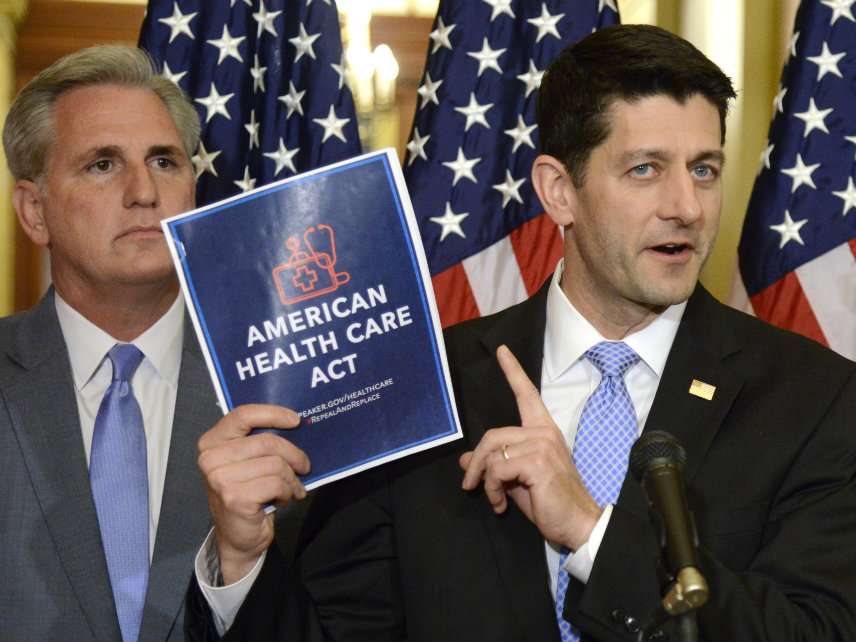CBO to Estimate That Repealing Obamacare's Individual Mandate Will Have a Smaller Effect on Health Insurance Coverage
New report suggests the Republican tax bill will have a smaller coverage effect, but cause an even bigger increase in the deficit.
The individual mandate is less important to maintaining health insurance coverage levels than previously estimated, according to a new report from the Congressional Budget Office (CBO). The new report suggests that the GOP tax bill will have a smaller effect on insurance coverage, but a bigger effect on the deficit, than official figures have indicated so far

.
The mandate, which imposes a penalty for failing to maintain health coverage, was repealed as part of the tax reform legislation that passed in December. But it proved a sticking point for congressional Republicans earlier in the year as they attempted to pass legislation overhauling Obamacare, the health law that included the insurance requirement.
CBO estimates showed that repealing the mandate as part of the overhaul would reduce health coverage by about 15 million people, a figure that was later reduced to 13 million as a result of a change in the CBO's baseline. CBO also estimated that this would result in about $340 billion budgetary savings, as a result of reduced government spending on health insurance.
Critics argued that the coverage loss estimate was far too high, in part because it assumed a significant reduction in Medicaid coverage as a result of eliminating the mandate. In most cases, Medicaid does not charge premiums.
After the health care effort stalled, reports surfaced indicating that CBO was at work on a revised estimate of the mandate's impact, one that would show a much smaller coverage effect. CBO confirmed in November that it was at work on revising its methodology.
A presentation published by CBO today indicates that the new estimate will show that repealing the mandate will result in fewer people losing coverage than previously estimated.
The report, which looks at how cost estimates are produced for legislative proposals affecting health insurance, says that CBO and its sister organization, the Joint Committee on Taxation, have "undertaken considerable work to revise and update their methods" estimating the cost and coverage effects of the mandate. "The preliminary results of analysis using revised methods indicates that the estimated effects on health insurance coverage will be smaller" than previously estimated.
We don't yet know what the new tally will be. It's unlikely to be zero. It is possible and even likely that CBO will still estimate that repealing the mandate will result in millions fewer people with coverage. But it does strongly hint that the impact on health coverage will be smaller than official numbers have shown so far.
It also implies that the GOP tax bill, which was estimated to increase the deficit by a little more than $1.4 trillion over a decade, will be shown to increase the deficit even more than previously estimated, because when the coverage loss figure shrinks, so do the budgetary savings.
In short: The tax law is shaping up to have a larger than estimated impact on the deficit, and a smaller impact on health care.


Show Comments (131)